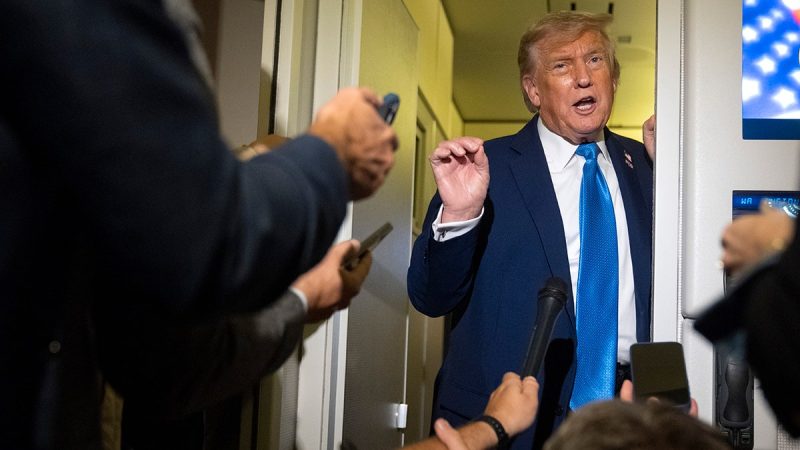
Trump ‘doesn’t need permission’ from Congress to strike Iran, expert says
While lawmakers argue over their position in the command chain as President Donald Trump mulls a possible strike on Iran, one expert believes that the president is within his constitutional authority to move ahead with a bunker-busting bomb.
Lawmakers on both sides of the aisle are embroiled in debate over where they are in the pecking order. Some argue they should have the sole authority to authorize a strike, let alone declare war, while others believe that is within Trump’s purview if he wanted to join Israel’s bombing campaign against Iran.
The predominant argument on the Hill is that the entire point of supporting Israel is to prevent the Islamic Republic from creating or acquiring a nuclear weapon.
However, a legal scholar who helped to craft the 2001 Authorization for Use of Military Force (AUMF), which authorized the usage of the U.S. armed forces to engage with the entities that then-President George W. Bush believed were behind the Sept. 11, 2001 terror attack in New York City, argued that there was a difference between Congress’ constitutional authority to declare war and the president’s authority to use force abroad.
‘The position we took then, I think, is the same one that Trump should take now,’ John Yoo told Fox News Digital. ‘As a legal matter, the president doesn’t need the permission of Congress to engage in hostilities abroad. But as a political matter, it’s very important for the president to go to Congress and present the united front to our enemies.’
The Constitution divides war powers between Congress and the White House, giving lawmakers the sole power to declare war, while the president acts as the commander in chief directing the military. Nearly two centuries later, at the height of the Vietnam War, the War Powers Resolution of 1973 was born, which sought to further define those roles.
Yoo agreed that the Constitution was clear that Congress has the sole authority to declare war, which effectively changes the legal status of the country. However, he countered that ‘the framers did not think that language meant that the President and Congress are like the two weapons officers on a nuclear sub and have to turn the keys at the same time to use force.’
‘The founders were very practical men, and they knew that Congress is slow to act, that Congress is a large body that deliberates, but it’s the president who acts swiftly and decisively in defense of the nation,’ he said.
Adding fuel to the debate in Washington are a pair of resolutions in the Senate from Sen. Tim Kaine, D-Va., and the House, from Reps. Thomas Massie, R-Ky., and Ro Khanna, D-Calif., that would require debate and a vote before any force is used against Iran. The measures are designed to put a check on Trump’s power and reaffirm Congress’ constitutional authority.
Yoo said that the resolutions appeared to be forms of ‘political opportunism’ and noted that when former President Joe Biden wanted to send aid to Ukraine, when former President Barack Obama engaged abroad or when Trump authorized a drone strike to kill Iranian General Qasem Soleimani, there was no resolution demanding Congress have a say.
‘People on the Hill are conflating what’s constitutionally necessary with what’s politically expedient,’ Yoo said. ‘Two very different things.’
Congress’ real power over war, he said, was the power of the purse, meaning lawmakers’ ability to decide whether to fund the Pentagon and military in their appropriations process. Republicans are currently working to ram Trump’s ‘big, beautiful bill’ through Congress and onto his desk by Independence Day.
Included in the colossal bill is roughly $150 billion in funding for the Defense Department.
‘If Congress really doesn’t want us to, doesn’t want Trump to, get deeper involved in the Israel-Iran war,’ Yoo said. ‘All they got to do is not fund the military.’
‘The ironic thing is, you have people who are voting to give extra tens of billions of dollars to the Defense Department, who are then turning around and complaining that they don’t have the ability to vote on war,’ he said. ‘Every time they vote for funding, they’re voting to make war possible.’
